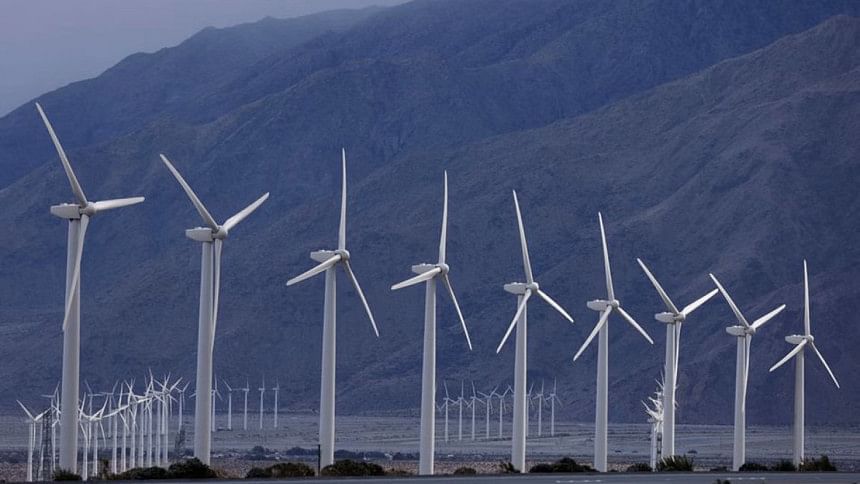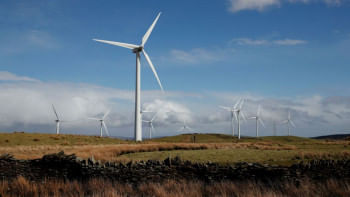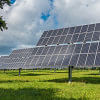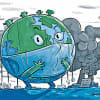The draft Renewable Energy Policy 2025 needs revision

The long-awaited draft of the new Renewable Energy Policy (REP) 2025 was published in February, inviting suggestions and advice for refinement. It promises generation of 20 percent (6,145 MW) of electricity from renewables by 2030 and 30 percent (17,470 MW) by 2041. However, this estimation is based on the overstated electricity demand forecast from the Integrated Energy and Power Master Plan (IEPMP). As per a demand projection by the Centre for Policy Dialogue (CPD), 20 percent renewable electricity in 2030 is 5,600 MW and 30 percent is 10,500 MW. Thus, the target of the draft policy is ambitious on the surface.
In 2008, Bangladesh set a modest target: 10 percent electricity from renewable sources by 2020. That deadline came and went. Even in 2025, the country barely achieved around five percent of renewable capacity. Now, the draft policy expects us to believe that in just six years, we will quadruple that share. China, a global leader in renewables, has set a target of achieving 25 percent non-fossil fuel by 2030. This raises the question: does Bangladesh—without the same resources, infrastructure, or investment as China—truly believe it can aim for a similar target?
The glaring flaw of the draft policy is the omission of a fossil fuel phasing-out strategy. The UK agreed on a coal phase-out by 2024. In Germany, a law schedules a coal phase-out by 2038 at the latest. On the other hand, Bangladesh government continues to promote conventional fossil fuel sources, and without a phase-out strategy, the renewable energy target seems like a mere political statement.
The draft policy lacks synchronisation. While its goals are set based on the estimations from the IEPMP, it should be noted that IEPMP emphasised natural gas, LNG, and nuclear power rather than renewable sources. Besides, the draft policy talks about increasing the "green energy" share in the energy mix but promotes many renewable sources that are not green. The policy assigns the Sustainable Renewable Energy Development Authority (SREDA) the responsibilities for overseeing, developing and implementing renewable programmes, but it provides the Bangladesh Energy Regulatory Commission the licensing authority, thus creating a bureaucratic maze.
The policy is deficient in adequate financing mechanisms. It speaks of a Sustainable Energy Development Fund, yet only in whispers, using wordings such as "may" be established, "may" be implemented. These words suggest a language of hesitation, not commitment. It also mentions Bangladesh Bank and Infrastructure Development Company Limited. However, financing from banks and non-bank financial institutions is not mentioned. Nothing is mentioned about incentives for foreign investors either. The truth is that the policy did not lay out any real financial schemes to generate the billions of dollars necessary for this shift. Where will that money come from in a country where too many power subsidies are already weighing the economy down?
There are several other areas where the policy requires improvements. In Bangladesh, industries are ascribed for the majority of electricity demand. Although the draft policy has encouraged rooftop utility-scale solar projects, it does not provide any measures for solar adoption for heavy manufacturing industries. Besides, the policy uses indecisive language with regard to several incentives. For instance, "the government may consider waivers for EVs," "stamp duty may be exempted," and "production-linked incentives may be provided." This lack of clarity creates uncertainty for stakeholders and could hinder investment and industry participation.
If Bangladesh wants to transition to a sustainable energy future, REP 2025 must undergo critical revisions. First, it must re-evaluate and set targets based on proper estimations. Secondly, strong and well-thought financing mechanisms and incentives for foreign direct investments must be introduced. Besides, it should include a phase-out strategy. Additionally, to accelerate the industrial renewable energy integration, it should also create financial incentives for off-grid solar adoption in manufacturing zones. To improve coordination, it is recommended SREDA be assigned full licensing authority over renewable energy projects. In terms of providing incentives, it must remove ambiguous wording and use more definitive language, such as "shall" or "will" to clearly establish the government's commitments. It has to actively and judiciously promote grid modernisation and improvement of renewable energy storage capacity.
The draft REP 2025 does not have enough necessary structural support, financial backing, and clear implementation strategies to attain the envisioned targets. Without critical revisions, the draft policy risks being another well-intentioned but ineffective document.
Dr Khondaker Golam Moazzem is the research director at Centre for Policy Dialogue (CPD).
Mehadi Hasan Shamim is programme associate at CPD.
Atikuzzaman Shazeed is a researcher at CPD.
Views expressed in this article are the author's own.
Follow The Daily Star Opinion on Facebook for the latest opinions, commentaries and analyses by experts and professionals. To contribute your article or letter to The Daily Star Opinion, see our guidelines for submission.

 For all latest news, follow The Daily Star's Google News channel.
For all latest news, follow The Daily Star's Google News channel. 










Comments